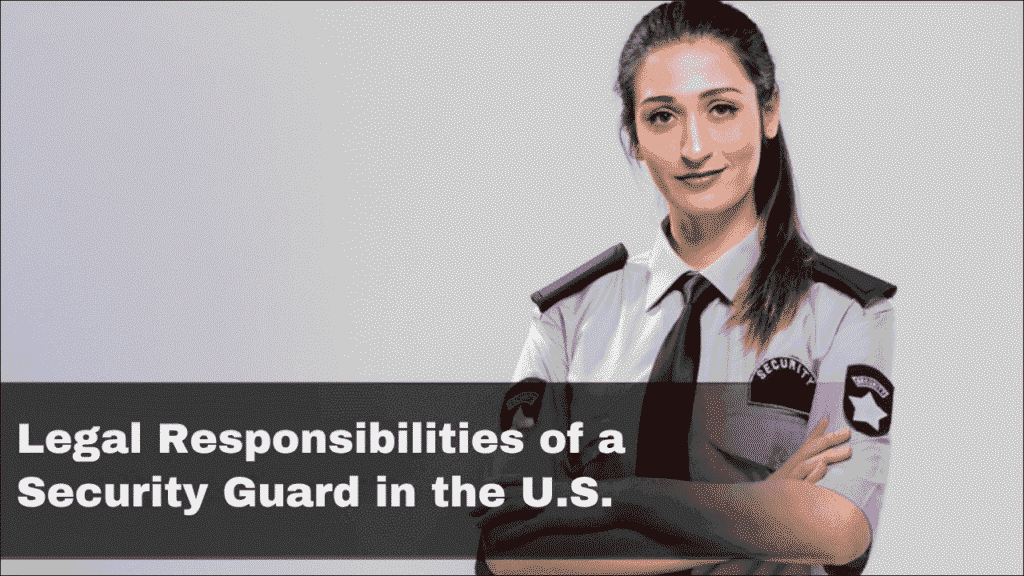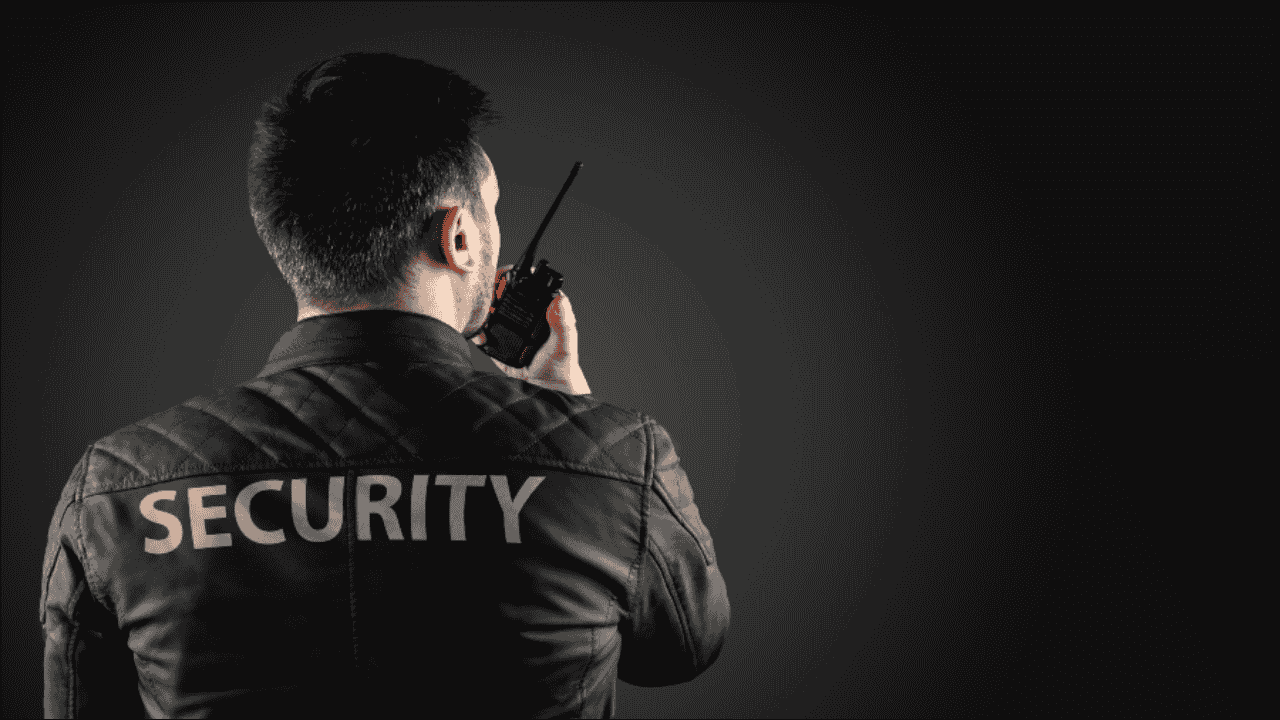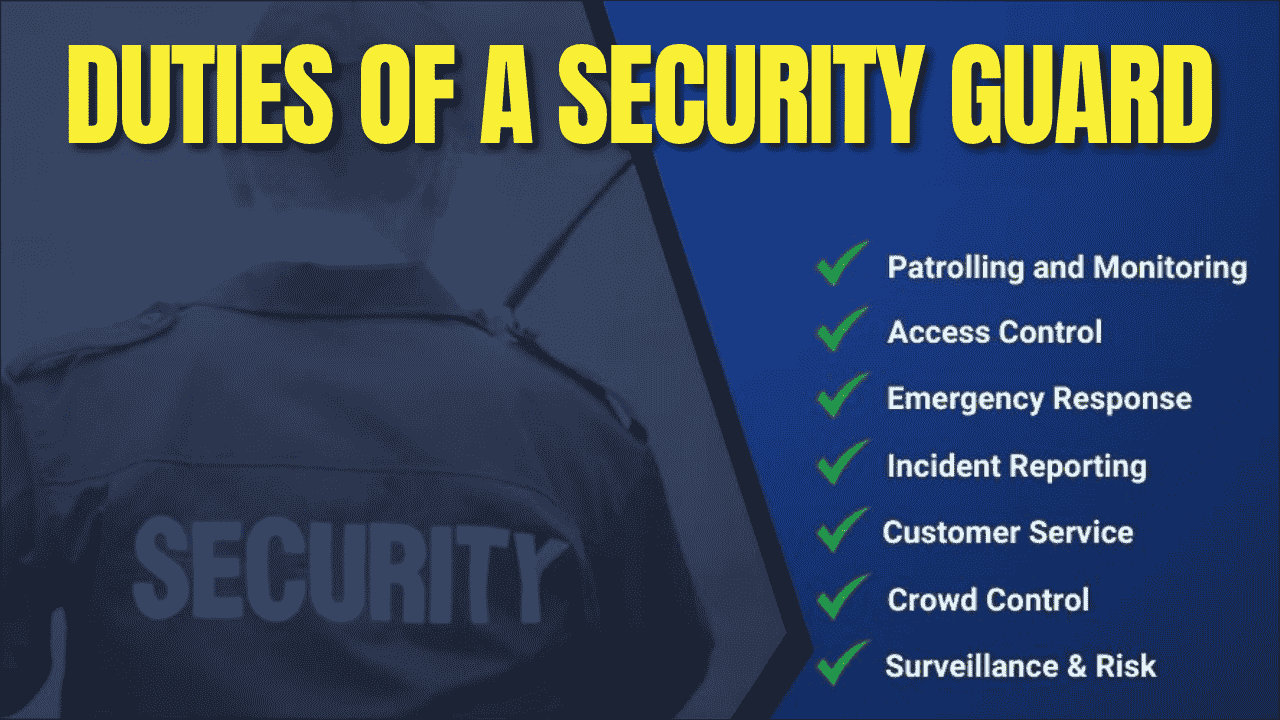
Security guards play a key role in protecting people, property, and information. In the United States, their duties go beyond simply standing watch. Legal responsibilities are assigned to them by federal, state, and sometimes local laws. These laws ensure that guards act within limits, protect the rights of others, and follow procedures when responding to incidents. Understanding these responsibilities is necessary for anyone working in or managing security services.
Table of Contents
Basic Legal Duties of Security Guards
Security guards must follow laws and operate within the scope of their job role. They are not police officers but are still given some legal authority in specific situations.
- Observation and Reporting
Security guards must observe surroundings, identify suspicious activities, and report incidents without delay. - Detaining Suspects
Temporary detention of a suspect is allowed in some states under the “citizen’s arrest” law, but excessive force is not permitted. - Protecting Property
Guards must protect assets from theft, vandalism, or unauthorized access. - Assisting Law Enforcement
Guards are often required to cooperate with police, sharing surveillance footage or incident details. - Maintaining Records
Proper log maintenance is legally required to support investigations or audits. - Following Company and State Guidelines
Guards must follow both internal policies and local/state laws.
Authority and Limitations
Security guards must clearly understand what they are allowed and not allowed to do under the law.
| Aspect | Details |
|---|---|
| Use of Force | Force may only be used in self-defense or defense of others. Deadly force is rarely justified. |
| Search and Seizure | Guards may not search individuals or property without consent unless stated by the employer’s policy. |
| Carrying Weapons | Permits are required for carrying firearms or batons. State laws vary. |
| Making Arrests | A guard may detain someone temporarily under “citizen’s arrest” in some cases. |
| Privacy Boundaries | Guards cannot access private communications, employee lockers, or phones without permission. |
Training and Certification Requirements
Legal responsibilities begin with proper training. States like California and New York have strict certification processes.
- Basic Guard Card Training
States often require entry-level training in criminal law, public relations, and emergency procedures. - Ongoing Education
Many states require annual or biannual refresher courses on new legal standards or tools. - Firearm Certification
Guards who carry firearms must complete additional weapons training and pass a background check. - CPR and First Aid
Certification in emergency medical response is sometimes mandatory, depending on the job location.
| State | Basic License Requirement | Firearm Permit Required? | Training Hours |
|---|---|---|---|
| California | Yes (Guard Card) | Yes | 40 |
| Texas | Yes (Level II/III) | Yes | 30-45 |
| Florida | Yes (Class D License) | Yes (Class G for firearm) | 40+28 |
| New York | Yes (8/16 Hour Courses) | Yes | 8-16 |
| Illinois | Yes (Permanent Employee Registration Card – PERC) | Yes | Varies |
Responsibility to Protect the Rights of Others
Security guards must balance their role as protectors with the legal rights of individuals.
- Respect for Civil Rights
Guards must avoid actions that discriminate based on race, gender, religion, or disability. - Avoiding Harassment
Any form of verbal, physical, or psychological harassment is illegal and unethical. - Maintaining Confidentiality
Information gathered during duty must be kept private unless shared with law enforcement or authorized persons. - Using Surveillance Legally
Video or audio monitoring should follow state surveillance laws, especially in places with an expectation of privacy.
Responsibilities During Emergencies
Security guards have added responsibilities during emergencies such as fire, medical situations, or active threats.
- Evacuation Coordination
Guards must guide people safely during evacuations as per the emergency plan. - Calling Emergency Services
Contacting police, fire departments, or ambulances must be immediate and accurate. - Crowd Control
During disasters, guards help prevent panic and ensure order. - Incident Reporting
Detailed legal reports must be written after any emergency response to support investigation or liability claims.
Employment Law Awareness
Security guards must understand basic employment laws that affect their work conditions and those of others.
- Wage and Hour Rules
Guards must receive fair pay, breaks, and overtime based on the Fair Labor Standards Act (FLSA). - Workplace Safety (OSHA)
Guards must follow and help enforce Occupational Safety and Health Administration (OSHA) safety rules. - Union Rights
In unionized environments, guards must respect the rights of workers to organize. - Non-Discrimination Policies
Equal opportunity must be maintained when interacting with employees, contractors, or visitors.
Legal Consequences for Misconduct
Failure to follow legal responsibilities can lead to serious consequences for guards and their employers.
| Violation Type | Possible Legal Action |
|---|---|
| Use of Excessive Force | Civil lawsuits, criminal charges, loss of license |
| Unauthorized Search | Legal complaints, lawsuits for violation of privacy |
| Discrimination | Federal or state charges, dismissal, fines |
| Illegal Detention | Criminal false imprisonment charges |
| Unlicensed Weapon Possession | Arrest, fine, revocation of firearm privileges |
Role of Employers and Security Agencies
Employers and agencies must also follow legal procedures when hiring and supervising guards.
- Background Checks
Employers must run legal background checks before hiring. - Training Provision
Agencies must provide all state-mandated training before assigning duties. - Insurance Coverage
Guards must be covered by liability insurance in case of incidents. - Regular Supervision
Routine checks and evaluations ensure guards comply with policies and laws.
Legal Differences by Jurisdiction
Legal responsibilities vary by state and city. Guards must understand local rules.
| State | Citizen’s Arrest Allowed? | Firearms Allowed on Duty? |
|---|---|---|
| California | Yes (with limits) | Yes (with permit) |
| New York | Yes (strict limits) | Yes (with training) |
| Illinois | Yes | Yes (with PERC + firearm card) |
| Florida | Yes | Yes (Class G license) |
| Oregon | Yes | Yes (DPSST certification) |
Looking Ahead
Legal responsibilities form the foundation of a security guard’s role in the U.S. Guards are not only required to protect people and property but also to do so while respecting legal boundaries. Proper training, clear understanding of the law, and continuous supervision are essential. A guard who understands and follows these legal duties ensures safety, protects rights, and avoids legal troubles for both themselves and their employers.





